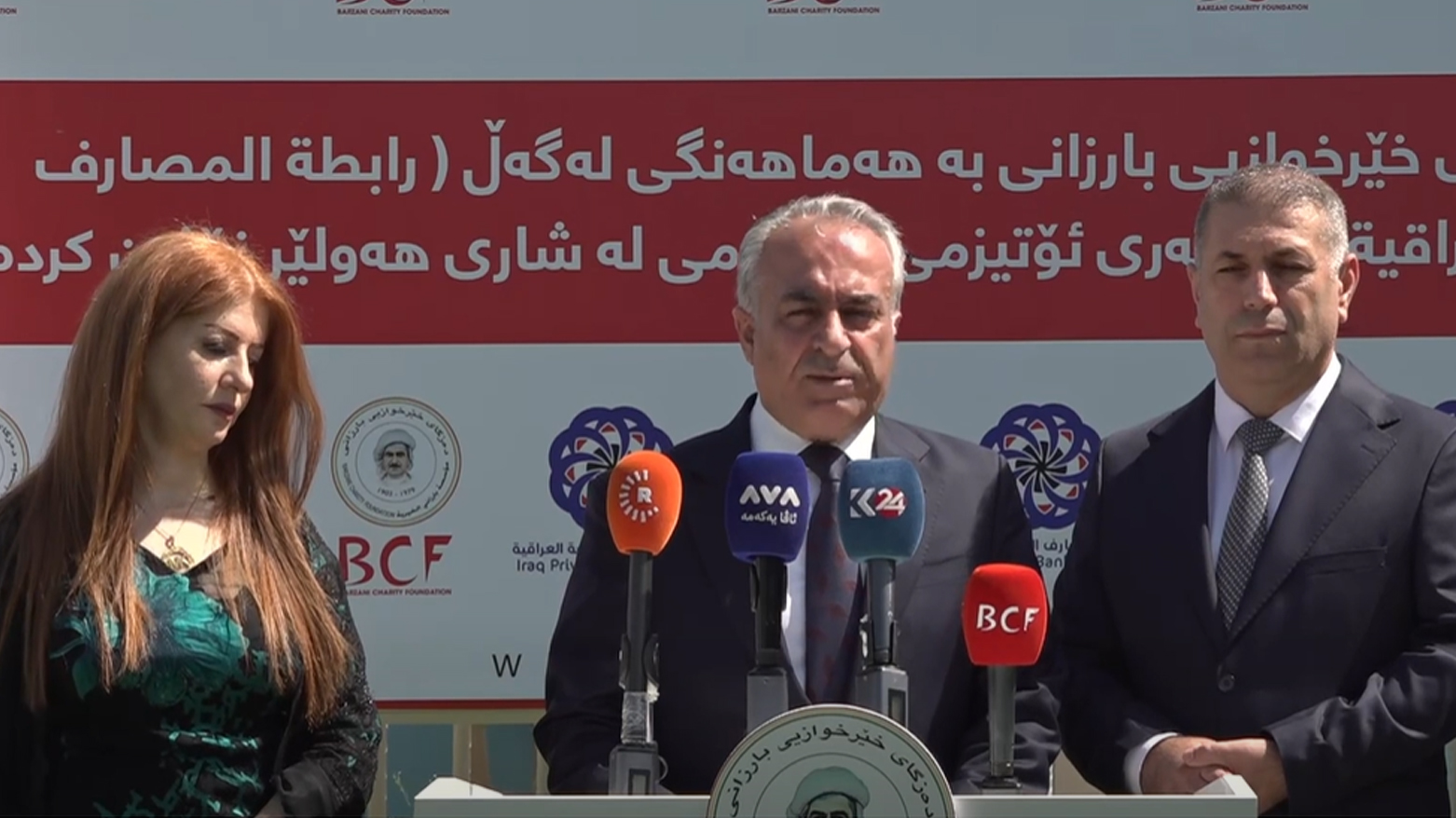Barzani Charity Foundation Reopens Government Autism Center in Coordination with Iraqi Private Banks
Barzani Charity Foundation reopens government autism center in coordination with Iraqi private banks. The initiative aims to strengthen services for autistic children in the Kurdistan Region, where nearly 3,900 are diagnosed.

ERBIL (Kurdistan24) – The Barzani Charity Foundation (BCF) announced on Thursday the reopening of the government-run autism center, as part of an expanded initiative to strengthen services for children with autism in the Kurdistan Region.
Speaking at a press conference, BCF President Musa Ahmad confirmed that the project has been carried out in coordination with the Association of Iraqi Private Banks.
Ahmad emphasized that the Ministry of Labor and Social Affairs bears a heavy responsibility toward children with autism, but affirmed that the Barzani Charity Foundation has stood ready from the very beginning to assist.
He pointed out that BCF’s autism centers have already proven effective, particularly in reintegrating children with autism into basic education. “As an example,” he said, “63 autistic children from our Emirates Autism Center in Erbil have successfully returned to mainstream schools—an achievement that fills us with pride.”
Reaffirming BCF’s commitment, Ahmad stressed the organization’s readiness to provide training, expertise, teachers, and equipment to all autism centers connected with the Ministry of Labor and Social Affairs.
According to official statistics, there are currently 14 autism centers in Erbil, 8 in Sulaimani, 7 in Duhok, and 4 in Garmian.
This development coincides with ongoing efforts by the Kurdistan Autism Association, which announced last month that two new specialized autism centers will soon be established—one in Harir, part of Shaqlawa district, and the other in Rizgari, within the Garmian administration.
The initiative, unveiled on August 12 by Association President Kamal Jabari, aims not only to train children with autism but also to guide and support their parents in better engaging with their children at home.
“These areas were chosen because of their urgent need for specialized services,” Jabari explained to Kurdistan24, adding that the long-term vision is to eventually establish autism centers in every city and town in the Kurdistan Region.
He also appealed to authorities to ensure the new centers are not limited to physical structures. “Buildings alone are not enough,” Jabari warned. “It is crucial that they are staffed with specialized experts so they can provide a truly effective service.”
The Kurdistan Regional Government (KRG) has taken parallel steps to address the needs of this community. Alongside establishing government and non-government centers, the KRG has introduced supportive measures such as granting extended maternity leave for mothers employed in the public sector who have children with autism.
In addition, the KRG recently submitted a full registry of children with autism in the Kurdistan Region to the federal government in Baghdad, seeking to classify them officially as individuals with special needs. This classification would entitle them to monthly assistance, although the registration process has yet to be completed by Baghdad.
Unofficial figures estimate that around 3,900 children in the Kurdistan Region are diagnosed with autism, underscoring the urgency of expanding both facilities and professional care.
The reopening of the government autism center, in partnership with private institutions, represents a key step in bridging gaps in service. With initiatives by both the Barzani Charity Foundation and the Kurdistan Autism Association, momentum is building toward a comprehensive framework that combines government responsibility, NGO initiative, and professional expertise.
As Musa Ahmad underlined, “Our centers are a model of what can be achieved when determination and coordination come together. Every child with autism in Kurdistan deserves the opportunity to learn, to develop, and to live with dignity.”